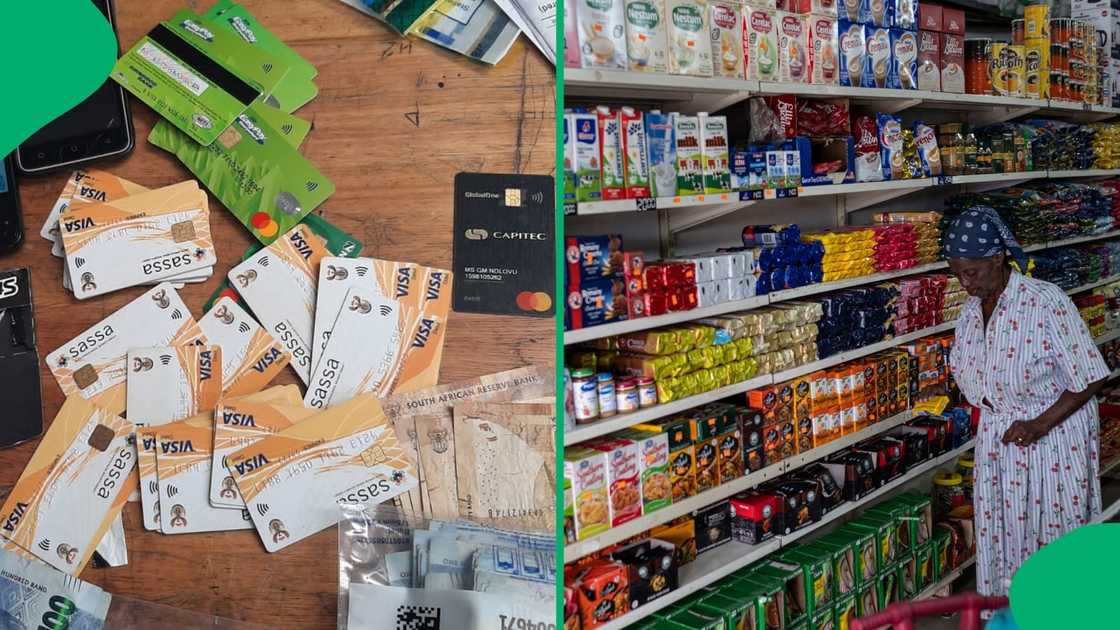Organisation Concerned About the Rise in Loan Sharks Withholding SASSA, ID Cards
- Human rights organisation Black Sash is worried that more loan sharks are illegally holding their clients' SASSA and ID cards
- Spaza shops also reportedly kept their customers' grant cards in exchange for credit to buy food
- South Africans shared instances where they witnessed loan sharks making multiple withdrawals using SASSA cards
With nine years of experience, Tebogo Mokwena, a Briefly News current affairs journalist, provided insights into infrastructure challenges and state-owned enterprises in South Africa at Daily Sun and Vutivi Business News.

Source: UGC
JOHANNESBURG — Black Sash National Helpline, a human rights organisation, has noted that more South Africans use their South African Social Security Agency (SASSA) and ID cards as collateral to get loans and buy groceries on credit from local spaza shops.
Spaza shops also withhold SASSA cards
According to SABC News, Black Sash noted that South Africans borrow money from mashonisas, or loan sharks, at excessive interest rates. They then use their SASSA cards as surety to settle their debts. Spaza shops have also been withholding grant recipients' cards to prevent customers who get groceries on credit from defaulting on payment.
PAY ATTENTION: stay informed and follow us on Google News!
How do the mashonisas charge interest?
SASSA child grant recipients received R420 monthly in 2023, which increased to R530 in 2024. This money is sometimes insufficient, and they borrow from loan sharks. The organisation's manager, Kgothatso Sibanda, explained that if a child grant recipient borrows R500 from a mashonisa, they charge an interest rate of R250. This means the borrower has to pay R750. The borrowers also confiscate their bank, SASSA and ID cards.
It is illegal to keep someone else's SASSA cards in your possession. Two years ago, the South African Police Service arrested 34 people who were found in possession of 100 SASSA grant cards in Gauteng. They intended to withdraw R100,000.
Spaza shop owners defend themselves
However, a spaza shop owner who spoke to SABC News said customers run away after taking groceries on credit. He said they confiscate bank and ID cards to ensure their borrowers fulfil their obligations to pay back. He noted that sometimes customers leave their cards and open new bank cards.
Makhadzi borrowed from loan sharks
Average South Africans aren't the only ones who rely on loan sharks. In a related article, Briefly News reported that musician Makhadzi opened up about lending from a mashonisha.
During a Podcast and Chill podcast interview in July this year, she confessed that she took a loan with a mashonisa to attend the 2024 BET Awards, where she won the Viewer's Choice: Best New International Act award.
PAY ATTENTION: Follow Briefly News on Twitter and never miss the hottest topics! Find us at @brieflyza!
Source: Briefly News



